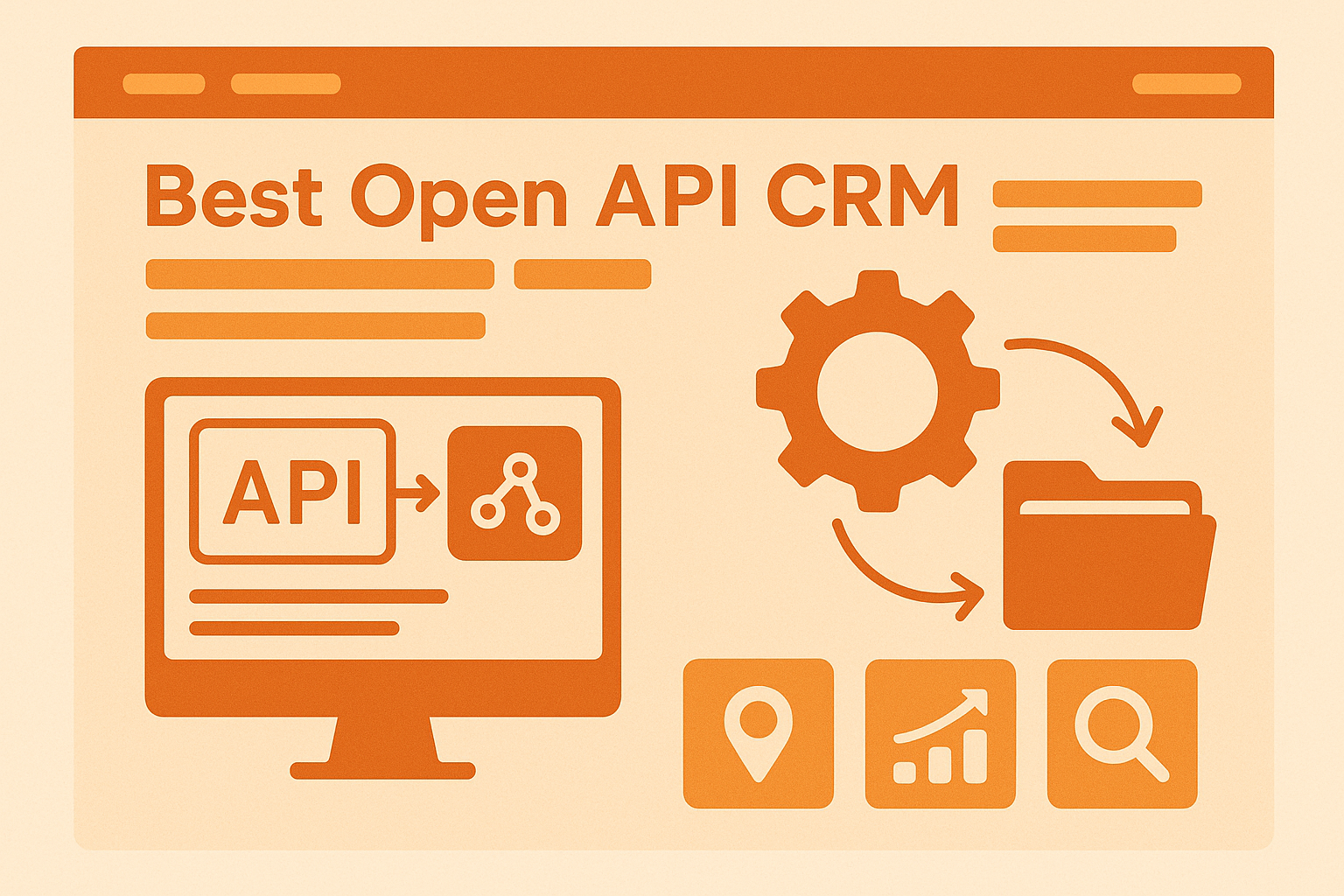At first sight, it seems like every made decision might cost you a fortune. You stand at the parting of the ways and try to scrutinize all the pros and cons, dark and bright sides. And one of the toughest decisions on the road to improving your customer relationship engagement is the choice between a cloud and an on-premise CRM platform. Of course, no one will run to an extreme persuading of selecting some particular customer relationship management system type.
Tearing apart between on-demand and on-premise CRM you might feel that mysterious creatures sitting on your shoulders – bright angel and dark evil. Today, we’d like to cut off these supernatural forces and analyze the advantages and disadvantages of using this or that CRM platform type right-minded.
What Is A CRM Software?
Most people think that a CRM is a tool with which to centralize your company’s data, better manage internal and external communication, and keep a detailed record of sales to sell more and sell better. A CRM system serves as the backbone of your customer relationship management strategy, enabling you to effectively track and analyze customer interactions, identify trends, and make data-driven decisions to enhance customer satisfaction and loyalty.
By centralizing your company's data in a CRM platform, you can easily access and update customer information, such as contact details, purchase history, and preferences. This comprehensive view of your customers allows you to personalize your interactions, tailor your marketing campaigns, and provide exceptional customer service. With a CRM system, you can also automate various tasks and workflows, streamlining your business processes and saving time and effort.
Furthermore, a CRM platform enables you to better manage internal communication within your organization. By providing a shared database and collaboration tools, it facilitates seamless communication and collaboration among different departments and teams. This improves coordination, enhances productivity, and ensures that everyone is on the same page when it comes to serving customers and meeting their needs.
In addition to internal communication, a CRM system also helps you better manage external communication with your customers. It provides various communication channels, such as email, phone, and social media integration, allowing you to effectively engage with your customers across different touchpoints. This enables you to build and maintain strong relationships, respond to customer inquiries and concerns in a timely manner, and deliver personalized and relevant communications.
You can pay attention to these best CRM solutions:
-Mar-27-2024-01-21-57-6217-PM.png?width=300&height=150&name=%D0%94%D0%B8%D0%B7%D0%B0%D0%B9%D0%BD%20%D0%B1%D0%B5%D0%B7%20%D0%BD%D0%B0%D0%B7%D0%B2%D0%B8%20(2)-Mar-27-2024-01-21-57-6217-PM.png)
Pipedrive
Pipedrive CRM is a user-friendly platform that is effortless to master. It is the creative web designer's secret weapon in the world of Customer Relationship Management.
-Mar-27-2024-01-16-32-1218-PM.png?width=300&height=150&name=%D0%94%D0%B8%D0%B7%D0%B0%D0%B9%D0%BD%20%D0%B1%D0%B5%D0%B7%20%D0%BD%D0%B0%D0%B7%D0%B2%D0%B8%20(5)-Mar-27-2024-01-16-32-1218-PM.png)
monday sales CRM
Let monday sales CRM do the grunt work while your team stays focused on high-level tasks, such as creative projects, business strategy, and relationship building.
-Mar-27-2024-01-16-53-6931-PM.png?width=300&height=150&name=%D0%94%D0%B8%D0%B7%D0%B0%D0%B9%D0%BD%20%D0%B1%D0%B5%D0%B7%20%D0%BD%D0%B0%D0%B7%D0%B2%D0%B8%20(4)-Mar-27-2024-01-16-53-6931-PM.png)
Salesforce
Salesforce is an industry leader known for its mammoth feature set and endless customization options. The platform can adapt to any industry, from manufacturing to insurance.
-Mar-27-2024-01-05-53-1607-PM.png?width=300&height=150&name=%D0%94%D0%B8%D0%B7%D0%B0%D0%B9%D0%BD%20%D0%B1%D0%B5%D0%B7%20%D0%BD%D0%B0%D0%B7%D0%B2%D0%B8%20(3)-Mar-27-2024-01-05-53-1607-PM.png)
Zoho CRM
It is a web-based email marketing management service for small and medium businesses. It automates the entire marketing process - from managing your email marketing campaign to maintaining mailing lists.
Playing Devil’s Advocate: Cloud CRM Pros And Cons
Despite the fact that for the last few years, SaaS (software-as-a-system) has become all the range solution it doesn’t look so transparent. There are relatively lots of conditions, business models where cloud customer management relationship platform might be more suitable or ill-timed.
Whispering the Bright Sides
- For Small Businesses Customer, relationship management platform that is run on the cloud network is a perfect solution for a small company and members team. Firstly, it requires fewer IT staff like system administrators and technical support, than on-premise CRM does.
- Price-Oriented Also, considering the price issue, cloud is more cost-effective. In most cases vendors charges per user, monthly or annually. So, you can see it is suitable for startups and company with the small budget.
- Overfly Within Departments If your company counts various departments, freelance or the remote workforce, on-demand CRM platform connects them quickly and intuitively.
- For Speed CRM Implementation While comparing on-demand vs. on-premise solutions, the former speeds up the customer relationship management implementation process. You shouldn’t look for extra resources like hardware or IT staff. Moreover, cloud CRM vendor takes care of platform updates and maintenance.
Itemizing the Drawbacks
- Low-Security On-demand CRM platform is not secure enough for businesses that specialize in some particular fields like healthcare or those which require more confidentiality and are personal nature related.
- Dark Side of the Price Sometimes, when the cloud-based CRM platform is implemented for large enterprises, this utility usually turns to be a costly affair. If you have pretty numerous company team and everyone needs the access to a database, it will be rather an expensive spending.
Reasons For And Against: On-Premise CRM
Although cloud customer relationship management platforms are rapidly covering the nowadays market share, there are a lot of reasons why many people give their preference to on-premise CRM type.
Tune in to On-Premise Benefits
- The solution for Enterprises On-premise CRM platforms are considered to be an instrument for large enterprises because of the fact that for a significant amount of team workers who need access to the database, this solution might be less expensive.
- Option for Additional Soft Integration Lots of CRM experts tend to advise on-premise CRM implementation in case you plan to integrate it with other software solutions.
- High-Security Level Comparing on-demand vs. on-premise CRM system, the latter one is frequently used for tightening data security. There are even peculiar legislative requirements that oblige companies to host your own database.
- Complete Data Control Hosting CRM on your server allows you to take the full control of data, clients’ information, and all the company activities.
Prick up Ears of On-Premise CRM Drawbacks
- Skilled IT Staff To run on-premise CRM, you should have an expert IT team to support and administrate the platform. Extra Sources You should take care of the hardware and layered software on your own.
The Key Differences Of The Cloud And On-Premise CRM Systems

Afterwords
The conclusion turned out to be so traditional – there’s no one-size solution for everyone. To make the right decision, you should analyze your company's internal relations, business purposes, and future goals. Consider factors such as the size of your organization, the complexity of your operations, and the level of security required. It is essential to understand that selecting a CRM platform is not a one-time decision. As your business evolves, you may need to migrate from your old CRM to a more innovative and advanced solution to boost productivity and increase revenue.
When making this transition, it is crucial to choose a reliable and trustworthy CRM migration partner like Trujay. With their expertise and experience, they can ensure a secure and seamless switch from your current CRM to your dream platform. Trujay provides a comprehensive and efficient migration process, handling all the technical aspects and ensuring that your data remains intact during the transition.
So, don't be afraid to explore different CRM options and find the one that best aligns with your company's needs. Remember, the right CRM platform can revolutionize your customer relationship engagement and propel your business to new heights. Make an informed decision, migrate with Trujay, and unlock the full potential of your customer relationships.

.png?width=140&height=140&name=Noah%20(1000%20x%201000%20px).png)



